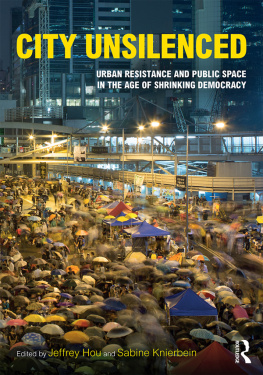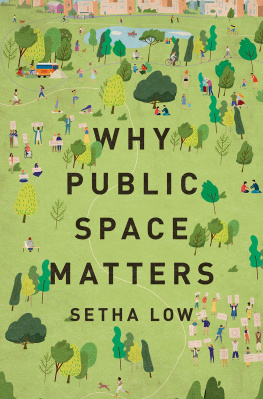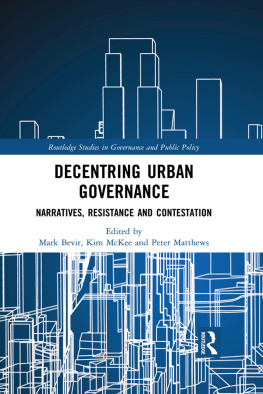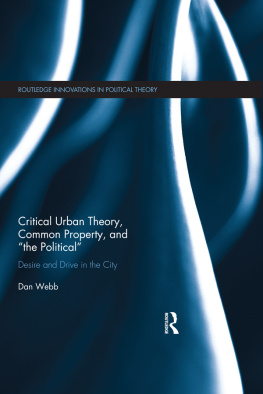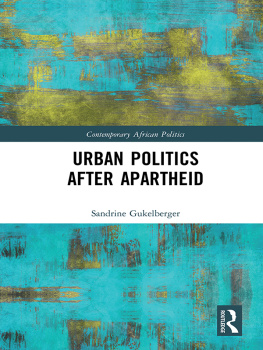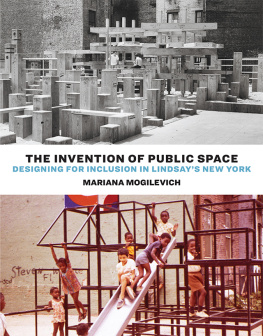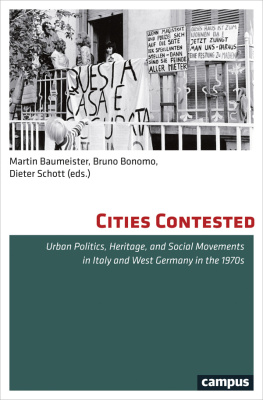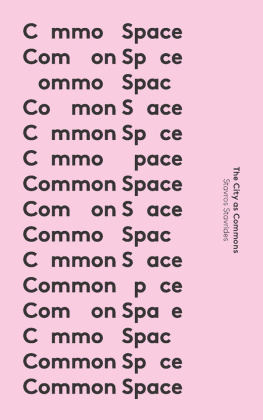The life time of a book project is such that the world around it may have shifted once the project is completed, and the shift may either have validated or invalidated the premise of the book. At the time when we started this project in 2014, the Occupy and Indignados events of 2011the year of dreaming dangerously (iek 2012)were still fresh in our mind. As we began the process of collating and editing the chapters in 2015, the so-called refugee crisis in Europe reached a new height and became publicly visible. Now, at the moment of finalizing this book, the world has been engulfed by the events of 2016the year of unleashing (Kurbjuweit 2016) when xenophobia and right-wing backlashes become manifest in different world regions in which chapters of this book are rooted: Brazil faced the impeachment procedures and the dismissal of the first female president to be substituted by a far-right, ultra-conservative president; in Turkey, following the failed coup dtat, President Erdoan began criminalizing activists, journalists, university teachers, and others, and turned the democratic state into an autocratic regime; the European Union was confronted with the economic and political impact of Brexit; and the United States would face new political and social uncertainties in the aftermath of Donald Trumps electoral win.
Whereas it seems that nationalism and xenophobia have dominated national political agendas in 2016, it is also important to point out that urban populations have voted generally in favor of equality, social justice, and lived ethnic and cultural differences. This was visible in the Social Democrats/Green Government coalition of Vienna winning the municipal election again in October 2015 (when the massive influx of refugees and a wave of solidarity gilded the neo-fascist, neo-racist and antipluralist voices in the urban political arena), and in the (repeated) presidential elections in Austria where the liberal and cross-party candidate was eventually elected. What we have witnessed across the globe, nevertheless, can be interpreted as a series of backlashes against democratic institutions which produce noteworthy tensions and debates but also polarization and stagnationinstitutions that have long been undermined by neoliberal economic policies and politics. As such, one might argue that 2011 and 2016 were just two important culmination points of wider aspects of neoliberal urban restructuring that have been in place globally since the 1970s, a process that has impoverished populations in the Global South and now in the Global North, to which resistance movements have emerged in cities and regions around the world. This book project has been an aspirational effort to understand better the contexts, mechanisms, and processes that propelled these movements as well as their implications for the future of public space and democracy.
This book is also in part the outcome of an ongoing pedagogical experiment at the Interdisciplinary Center for Urban Culture and Public Space (http://skuor.tuwien.ac.at), at the Department of Spatial Planning, Faculty of Architecture and Planning, TU Wien (Austria). Directed by Sabine Knierbein, the center is an interdepartmental institution, funded by the City of Vienna to undertake innovative curriculum developments in planning and architecture schools and to influence the skills of future professionals in the field. This exceptional initiative came about in 2008 as Viennas governmental and university institutions recognized the need to reinforce the link between planning and architectural education, social needs, cultural demands, democratic claims, and related policy fields, and decided to join forces.
The financial support of the City of Vienna enabled the founding of Visiting Professorships and inauguration of a series of international and transdisciplinary explorations, in the forms of educational training (summer schools, graduate and postgraduate teaching modules, participatory action research) and public events (lectures, symposia, and conferences). The program has been dedicated to a specific theme each year and the activities have been codesigned with the annually invited international visiting professors. The themes and invited scholars include civil society, culture, and conflict (with Thomas Sieverts and Chiara Tornaghi in 2009); state, politics, and planning (with Ali Madanipour and Aglae Degros in 2010); markets, economy, and innovation (with Sophie Watson and Tore Dobberstein in 2011); resources, aesthetics, and materiality (with Maria Kaika in 2012); knowledge, education, and difference (with Jeffrey Hou in 2013); ways of life, everyday life, and insights (with Rob Shields and Elke Krasny in 2014); past(s), urban peace, and the welfare state (with Nikolai Roskamm in 2015); present(s), urban solidarity, and European crises (with Sybille Frank in 2016); and future(s), urban equity, and the global agenda (with Ed Wall in 2017).
This volume represents one outcome of the second half of the 2013 program led jointly by Jeffrey Hou and Sabine Knierbein. The yearlong cooperation under the theme of Urban Culture, Public Space and KnowledgeEducation and Difference also included the realization of a European Summer School in 2014 with the theme of Designing Places for Emancipation. The program presented an opportunity to examine and reflect systematically upon the recent wave of urban resistance around the world. Specifically, with experiential approaches to reinterpret and question the notion of urban emancipation, the event provided an opportunity for extensive discussions on the emancipatory potential of collective, urban actions. It was in this context that the topic of urban resistance and public space came into focus.
We would like to thank all colleagues and friends with whom we had rigorous discussions on public space and urban resistance that challenge the conditions of what we call shrinking democracy. In particular, we would like to thank participants of the various educational activities realized at TU Wien and various sessions of the Association for European Schools of Planning (AESOP) Thematic Group on Public Spaces and Urban Cultures, particularly the Becoming Local meeting series in Vienna, Paris, Prague, and Oporto. The thinking behind this volume also benefitted from discussion in a number of events, including Cities That Talk, the 8th International Conference for the Young Academics (YA) Network of the Association of the European Schools of Planning (AESOP) at the University of Gothenburg (2014); Putting Public Space in Its Place, a conference at the Graduate School of Design, Harvard University (2013); the Global InsurgenciesRemaking the Public City in Asia symposium at the Asia Research Institute, National University of Singapore (2012); the City Axioms Symposium at the University of Stockholm (2012); and the Freedom of Assembly: Public Space Today Redux symposium at the Center for Architecture in New York (2012), as well as invited lectures at CUNY Graduate Center, Pratt Institute, and KTH Royal Institute of Technology.
A number of individuals and organizations have made the publication of this book possible. Specifically, the yearlong cooperation was made possible by the generous support of the Administrative Group for Urban Development, Traffic and Transport, Climate Protection, Energy and Public Participation and the related StadtbaudirektionGruppe Planung (Urban Building DirectorateGroup Planning), City of Vienna, and by the Faculty of Architecture and Planning and the related Department of Spatial Planning at TU Wien. Drive, a Vienna-based urban research NGO, and the Urban Renewal Management Office GB5 supported our work during the Urbanize Festival 2013. The Vienna Science and Technology Fund (WWTF) provided the budget to host the summer school, which benefitted from additional support by different institutions at TU Wien. Faculty Professional Development Fund from the Department of Landscape Architecture at the University of Washington, Seattle and funds from the Vice Rectorate for Research and Innovation at TU Wien also supported the editorial work.

